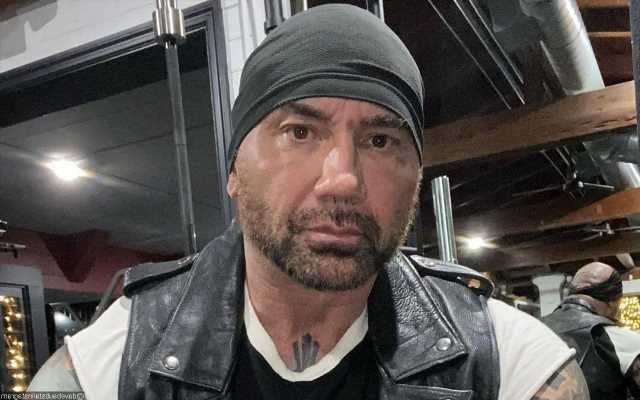Written by Amy Beecham
Ghosting isn’t just a worrying dating trend – more and more people are being ghosted “professionally”.
If you’ve ever been unfortunate enough to be ghosted after a date, you’ll know it’s a pretty sinking feeling.
However, it’s not just our relationships that can be cursed by the cutting of contact.
New research from software company Tribepad has found that two-thirds of the UK public has been ghosted after a job interview.
Indeed, there is a growing trend of job seekers completing multiple interviews during the hiring process, only to never hear back about whether they were successful.
“This has happened to me three times,” explains Lydia, 27. “On one occasion they told me I had the job and said they’d send a contract over shortly. They even asked me for my uniform size but then ghosted.” Lydia followed up multiple times via email, but never heard anything back.
Grace*, 29, has a similar story. “A well-known skincare brand interviewed me for a role over the course of four months,” she tells Stylist. “I interviewed four times, completed a full presentation with four other supplementary tasks, and they even changed the role midway through. After all that I never heard back.”
She attempted to get in touch with them, to no avail, for over a month before finally receiving an email that asked her to review her interview experience. “It’s just laughable.”
The impact of professional ghosting on mental health
Job interviews require a lot of effort on the part of the candidate. From sprucing up your CV and writing the dreaded cover letter, to the actual interview, which can often be in multiple parts involving group stages, tasks and presentations.
But professional ghosting doesn’t just mean we’ve wasted our time andleave us with a lack of closure and knocked confidence.
Tribepad’s research found that the impact on our mental health is significant. According to their report, 86% of respondents claimed that the experience had left them down or depressed in some way, with 17% saying they had been left severely depressed.
The rise of professional ghosting has also highlighted other unsavoury hiring practices, including a lack of boundaries.
“I once interviewed five times with the same person for a role,” says Brinda*, 41. “The interviewer even called me late one evening to ‘just talk’ but ended up never getting back to me.”
Brinda explains that she often felt like she was only called in to interview to fill a diversity quota, before being ghosted by the potential employer. “I was contacted by a recruiter to interview for my dream job. After initially meeting with the company’s HR department, the recruiter told me point-blank that I didn’t get the job because I was “not a cultural fit”.
Has the pandemic made professional ghosting worse?
With the pandemic sparking a large-scale transition to working from home, have virtual interviews made it easier for candidates to be ghosted?
“Covid has highlighted silos in recruitment practices where hiring processes have become disconnected and disjointed,” says Rita Trehan, CEO of Dare Worldwide. “It’s the bare minimum for companies to acknowledge applications and then make the effort to close the loop regardless of whether the candidate is successful.”
“It’s gotten way worse in the last year or so,” agrees Georgina*, a freelancer. “I am constantly asked to quote for jobs and never hear back, not even for rejections.”
“The reasons are complex but an underlying theme is that humans hate awkward conversations and go out of their way to avoid them,” Romanie Thomas, CEO and founder of Juggle Jobs tells Stylist. “Saying no to someone requires mature communication which can be difficult for some.”
“For companies, ghosting can happen for process reasons too, such as a change of stakeholder or juggling other candidates. But sites like Glassdoor are shining a light on shoddy processes now.”
Thomas also agrees that ghosting is on the rise in part because the in-person human touch is missing from the interview process. “It’s never acceptable,” she says. “For companies, there is so much automation within the recruitment-tech stack now meaning there is no excuse to let someone down.”
Niamh, a 30-year-old senior account manager, admits that she’s been repeatedly ghosted throughout her career.
A few years ago, she was courted by a recruiter who encouraged her to travel over an hour to an interview. “I was made to feel like it was a straight run,” she says. “They told me that I was exactly what they were looking for, and that they just needed sign-off from one more person.”
Then suddenly, communication went dead. “I followed up and tried to call the initial recruiter who had hounded me, but heard nothing back. I then added the other people who had been a part of theinterview process on LinkedIn and asked them what was going on with the position. I saw that the message had been read, but nobody responded.”
“I questioned whether it was OK for me to be so persistent, and felt paranoid that I was chasing, but I just wanted to know what was going on after I invested so much time in the process. I’d also mentally checked out of the position I was in, because I’d started to dream about this new role. It made me feel so silly that I had got so wrapped up in the promise they’d made me when I was absolutely fine where I was before that.”
She wants recruiters to give more thought to the time and effort they’re taking from people when they don’t respond after an interview.
“Even a two-minute email explaining they’ve gone in a different direction would be something. I don’t understand why they behave like this.”
Images: Getty
Source: Read Full Article


